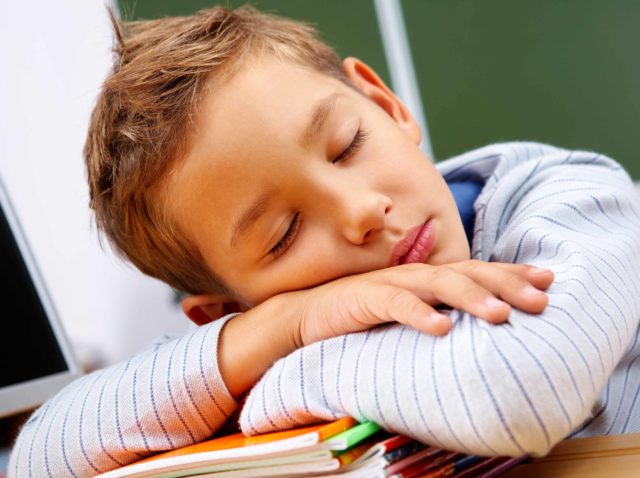
By Dr. Michelle Hintz, Psychologist, SouthFloridaReporter.com, Nov. 5, 2015 – “Good night, Moon. Good night, Room.” For generations, many American children have gone to bed after hearing these popular verses.
And yet today, many parents struggle to get their kids to bed at a reasonable time. Fitting in enough hours in dreamland is a struggle not just for children, but for parents. Today, most Americans are sleep-deprived although research has confirmed that there are serious consequences to not getting an adequate amount of zzzzs.
In children, sleep deprivation has profound yet subtle effects. Even an extra 30 minutes of sleep can help kids perform better in school, and it’s crucial for memory, focus, and other cognitive functions
The consequences are quickly visible in school. Kids who do not get enough sleep have more difficulty focusing and are often restless, fidgeting, irritable, etc. The National Sleep Foundation reports that poor sleep can have consequences such as “behavior problems, impaired learning and school performance, mood and emotion problems, and poor health, including obesity.”
The foundation conducted a poll of parents about the sleep habits of their children. The recommended amount of sleep per night for kids aged 6-10 is 10-11 hours, and for older kids is 8.5-9.5 hours. Distressingly, the average estimates for every single age group were too low.
Parents reported that their 6-10 year olds were only getting 8.9 hours per night, and only 7.1 hours for 15-17 year olds. American children are not getting enough sleep, and it is affecting them all day long. If this is true for your child, then consider the following ideas.
Three Ways to Reprioritize a Healthy Night’s Rest
The first way to improve your child’s sleeping patterns is to consciously alter our use of media and technology. We are allowing too many of our limited hours per day to be sucked up by our devices. Over 70% of the children discussed in the survey have at least one electronic device on while they sleep. This deprives them of an estimated one hour per night.
Using screens right before bed, even in other rooms, has the same negative effect. There are a couple of reasons for this. The first is that responding to a game or social media makes our brains more active, so getting back to a calm, sleepy state takes a while. The second is that the light actually tricks our eyes into thinking that it’s daytime, resulting in a delayed release melatonin, our sleep-inducing hormone.
The second way is to plan out the hour or two before bed more carefully. For pre-schoolers and elementary school aged-children, there is often a ‘window’ towards the end of the day when they slow down and become quieter. Parents can take advantage of this by pairing it with baths and calm activities, like reading. This makes the transition to bedtime easier.
The third strategy is for parents to enforce strict bedtime rules. Parents need to stick to age appropriate bedtimes, which mean having staggered bed times for families with children of varying ages. There should be family rules concerning how late in the day everyone can have caffeine and what time televisions and mobile devices should be turned off. No electronic devices should be allowed in bedrooms.
Overall, regulating our technology use, setting a transition period, and having consistent bedtime rules are great tactics for ensuring we get enough sleep. These can be especially important for individuals with ADHD, who are more likely to have a hard time falling asleep.
A nighttime routine is crucial. And it is not just younger people who need sleep; these strategies will be effective for adults, whose sleep deprivation can also have more immediate and dangerous consequences, as evidenced by the dangers of drowsy driving.
Though it is often the first of our bodily needs to be ignored, sufficient sleep needs to be a major priority. According to the CDC’s recent studies, sufficient sleep is as big a part of overall mental and physical well-being as a healthy diet and exercise. We should all be making an effort to get the sleep we need to be our best selves.












